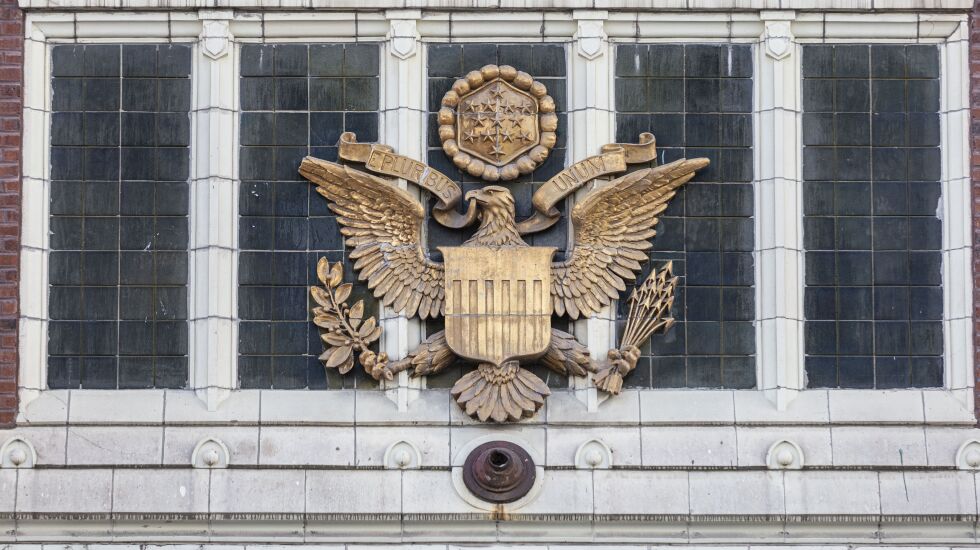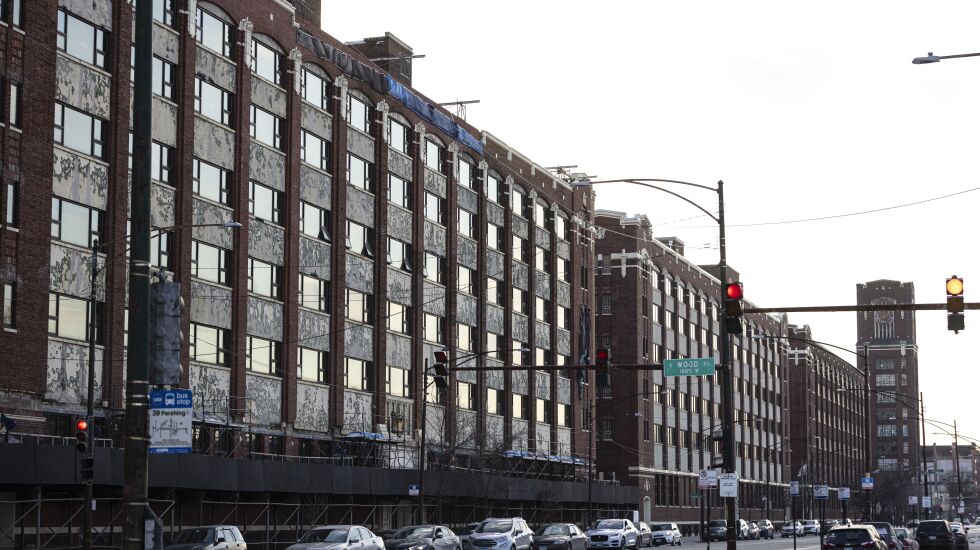
Make a list of the city’s most historically important places and the buildings of the old Central Manufacturing District in the McKinley Park neighborhood probably wouldn’t make the cut.
But they should. We’d be a different city had it not been for the CMD, among the country’s first industrial parks.
The early 20th Century brick, limestone and terra cotta buildings formed a hard-working, well-designed mile-long backbone down Pershing Road between Ashland and Western avenues.
And from 1905 through the 1960s, thousands of CMD workers from 252 companies helped supply the nation with everything from furniture to chewing gum.
During the district’s salad days, players there included Goodyear Tire, Westinghouse and an assortment of others, including food processors, drug makers, oil refiners and furniture makers who made use of the shared costs of services provided by the CMD.
The CMD represented a great deal of Chicago’s early industrial, economic and architectural might.
But you wouldn’t know that by looking at the district today. The CMD has been largely uninhabited in recent decades, leaving many of these important buildings in decay — unused and unprotected.
But that could start to change this month as the Department of Planning and the McKinley Park community begin vetting proposals from three developers seeking to reuse the CMD’s easternmost building, a vacant 571,476-square-foot city-owned warehouse at 1769 W. Pershing Road.
The building is among four CMD structures owned by the city.
Planning Commissioner Maurice Cox, imported from Detroit at the start of Mayor Lori Lightfoot’s administration four years ago, said he is excited over the prospect of putting the 1769 building and a neighboring truck lot back into use.

“I really thought that Detroit had invented the [quality industrial building] type and perfected it,” he said. “So I was all puffy when I got here and then realized, ‘Oh my God, Chicago’s got this collection’ [at the CMD] — incredible brick work, incredible details, very ornate. And the city owns all four.”
Three proposals
The three short-listed proposals include a $121 million plan from IBT Group to convert the warehouse into 120 units of mixed-income housing, along with 200,000 square feet of offices, plus retail and lab space.
The developer also plans to put a 50,000-square-foot retail building and 132 parking spaces on the current truck lot site.
Meanwhile, in its $95 million proposal, LG Pershing Sound Studios promises to turn the warehouse into a 40,000-square-foot movie studio and 130,000 square feet of retail and commercial space. The plan includes additional studio space on the truck lot.
The developer Quartermaster Outpost seeks to build a 75,000-square-foot movie studio on the truck lot while putting 425,000 square feet of business space in the warehouse. The $90 million plan includes building 40 mixed-income housing units on a top floor that would be added to the warehouse.
The McKinley Park Development Council is among the community groups that helped pick the three developers and will aid in selecting the ultimate winner.
“We’re looking for options that increase public access to the CMD — to make it pedestrian-friendly,” said the organization’s president, Kate Eakin.
“We want to be careful that it’s done well because it will set a standard for what comes next in the CMD,” she said.
‘An impressive thing’
And what’s next for the district? Cox said he hopes to bring the three developers and their concepts before the community at the end of the month.
“And we’re off,” he said.
Afterward, the plan is to work westward on Pershing, redeveloping unused CMD buildings.
The architectural stars of the next bunch of buildings are a 12-story neo-gothic clock tower and the district’s former Union Freight Station.
Both are beautiful brick edifices built when the district was a self-contained, privately-owned powerhouse with its own bank, social club, rail lines and police and fire departments.
The buildings and the greater CMD are more than worthy of preservation and reuse, especially now as the structures hold their own against demolition and neglect.
An original CMD Wrigley gum factory building at 35th Street and Ashland Avenue was demolished in 2013, the same year an extra-alarm blaze claimed the former Pullman Couch Factory at 3737 S. Ashland Ave., within the old district.
Still, there’s a lot of the old CMD left. And it’s quite the marvel.
“It’s an impressive thing,” Eakin said. “To see something like that. We make [industry] look good.”
Send letters to letters@suntimes.com






